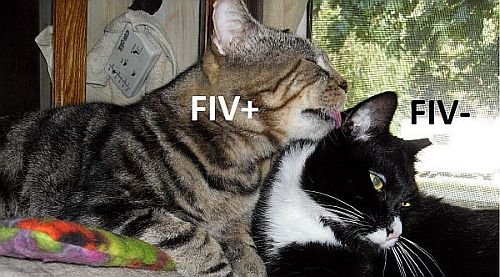We've been told that these viruses can only last outside of the body anywhere from a few minutes to a few hours. And up until now, that hasn't really been much of an issue for us, since our cat with FIV/FHV and our healthy cat live in different parts of the house.
Unfortunately, something has just come up, and we may need to temporarily move Buddy (our cat with FIV/FHV) into the master bedroom for part of the day for awhile. So how long would we need to keep that room off limits to Oscar once Buddy can return to his usual living quarters?
Unfortunately, something has just come up, and we may need to temporarily move Buddy (our cat with FIV/FHV) into the master bedroom for part of the day for awhile. So how long would we need to keep that room off limits to Oscar once Buddy can return to his usual living quarters?




